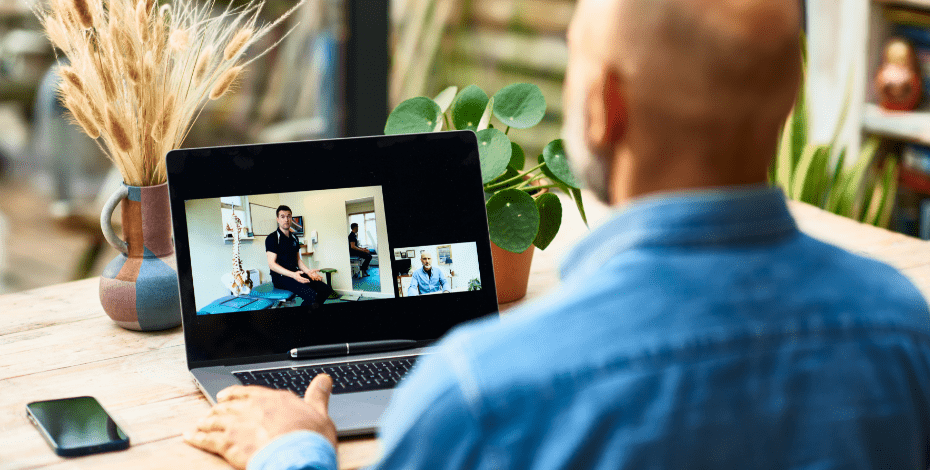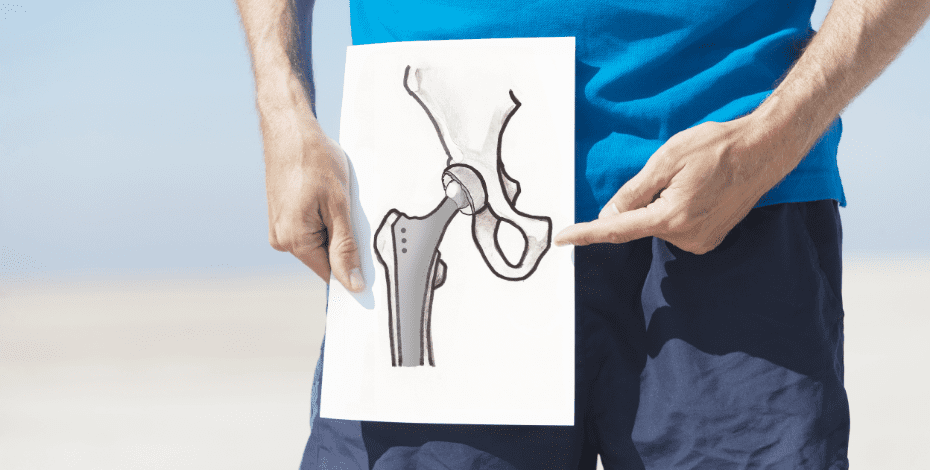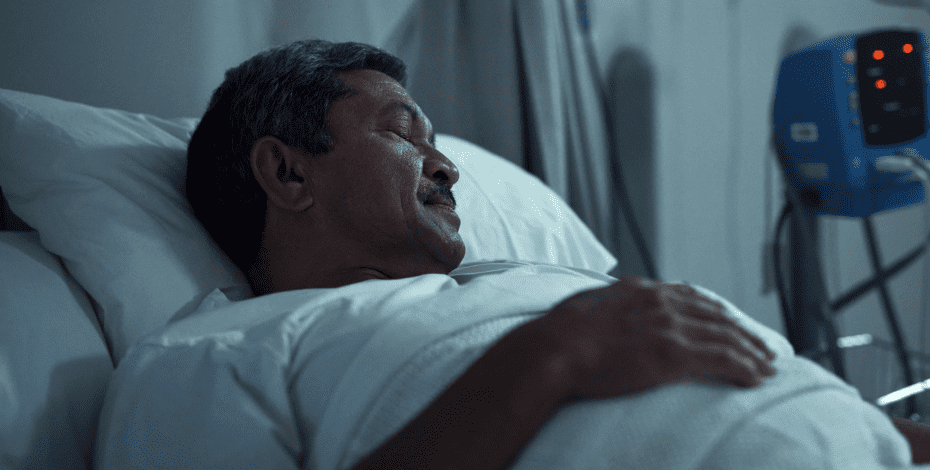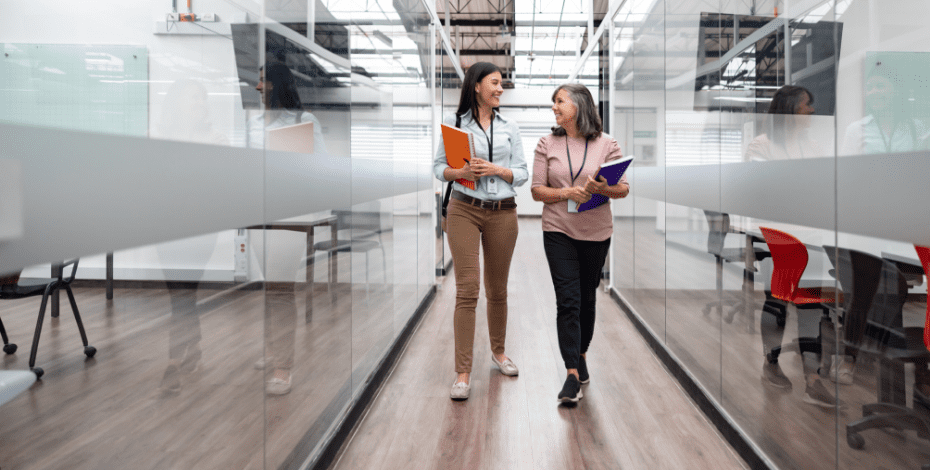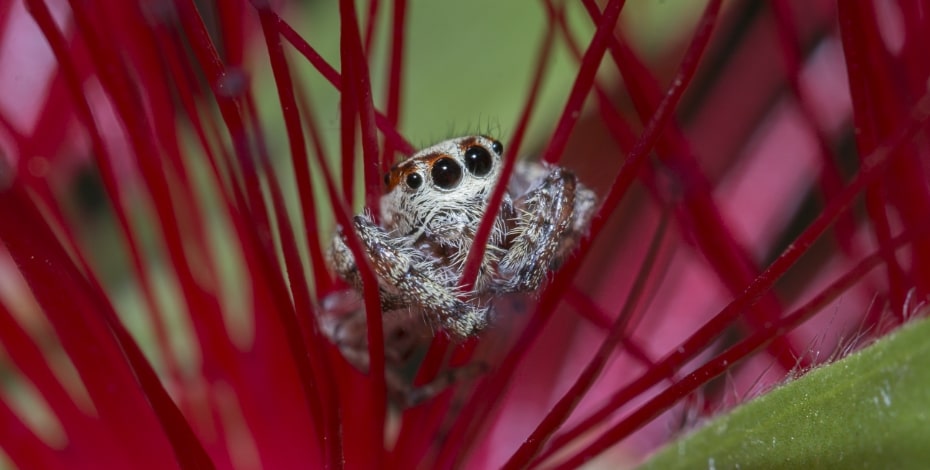
Putting life’s passion into focus

On the surface, there may seem to be little correlation between physiotherapy and wildlife photography. But look a little deeper and you’ll find several commonalities, says retiring neurological physiotherapist Lauren Wade. Lauren speaks about swapping patients for patience and having a critical eye for detail.
It was during the second COVID-19 lockdown in Sydney in 2020 that things began to change for Lauren Wade FACP.
As the number of patients she saw through her mobile physiotherapy business slowly dwindled (by her own choice), Lauren had more time on her hands to explore the beauty of her own backyard—quite literally.
Backing onto the family home in West Pymble is Lane Cove National Park, with a mix of abundant wildlife and characteristic terrain that is a beacon for any amateur wildlife photographer. So off she went.
‘We’ve lived next to the bush for 10 years but I had little kids and hadn’t really gone out there much,’ Lauren says.
‘I think my family is probably a bit disappointed that I’ve discovered the bush there now. They don’t see me anymore; I’m always “off for a walk”.’
The lockdowns in Sydney opened the door to the world of amateur photography for Lauren.
Right on her back doorstep was a way to enjoy some exercise, to explore her patch and to take up the hobby she had often thought about when working as the sole practitioner of a mobile physiotherapy service for the past 20 years.
In lockdown, Lauren found the perfect excuse to bring her passion for photography into focus.
‘I basically treated [the second lockdown] as long service leave.
'I didn’t work much then, a day a week maybe,’ Lauren says. ‘I didn’t have kids at school. So I started taking photos of insects on the fence.’
With her trusty Canon DSLR camera in hand, Lauren would sometimes wait hours to get the right shot.
Patience, she says, is a skill required of any photographer.
Blue-banded bees (‘I spent endless hours in the summer trying to get a shot of a bee in flight’), variegated fairy-wrens and flannel flowers were brought into view and captured in images, some of which Lauren has had printed to display in the family home.
However, the pursuit hasn’t stopped there. Lauren has joined Cumberland Bird Observers Club and, since 2020, Lauren, her husband Chris and another couple have begun going on amateur photography weekend trips away.
‘The four of us just went down to Canberra a couple of weeks ago. with the club.
'They have outings all over the place, and it’s a great way to learn about good bird watching sites.
'However, when you go with the club there are about 25-30 people in a group, so it’s not necessarily the best way to see birds.
'But we then we go back later, just the four of us, and spend more time observing and taking photos,’ Lauren says.
While amateur photography and physiotherapy may seem like unrelated pursuits, they share a connection through the need for careful observation and planning.
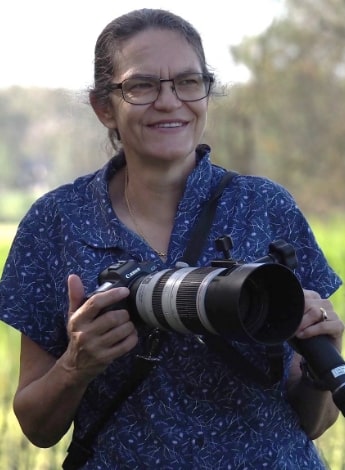
Lauren Wade.
Whether it is slowing down enough to observe that a bird keeps returning to the same branch so you can plan how best to capture that moment or observing how a patient is moving and planning how best to tackle that particular problem.
In both endeavours, observation is the key ingredient, Lauren says.
Lauren’s physiotherapy career began when she was dissuaded from becoming a pharmacist by her pharmacist parents.
Lauren chose physiotherapy instead and graduated from Cumberland College of Health Sciences in 1986, the same year she became a member of the APA.
Lauren went straight into the public health system, on allocation at Sydney’s Westmead Hospital, and found that the exposure to a wide variety of departments within the hospital helped to identify and cement her passion for neurological physiotherapy, a field to which she would go on to devote her entire career.
‘My first rotation during my allocation year was acute neurosurgery.
'After two months there, I’d come to the conclusion that people didn’t recover after a brain injury. No one had made any major improvement.
‘My final rotation was at Parramatta Hospital. A couple came up to talk to me.
'I recognised the woman as the wife of someone I’d looked after at the start of the year in acute neurosurgery.
'The man was that patient. He’d been was unconscious last time I’d seen him. It was quite a defining moment. I then realised that people do improve after a brain injury.'
After working in the brain injury unit at Glenrose Rehabilitation Hospital in Edmonton, Canada, for eight months, Lauren returned to Sydney at a time when the New South Wales Government was investing in brain injury rehabilitation services in teaching and paediatric hospitals.
Lauren promptly got involved and spent 10 years rehabilitating patients with acute brain injuries at Westmead Hospital.
‘It gave me a huge amount of experience with brain injuries.
'I saw people from a relatively acute stage—once they were basically medically stable—right through to discharge,’ Lauren says.
‘You learn the importance of doing things thoroughly and not to write people off.
'If patients are not well managed, they can end up with terrible contractures.
'This made me very passionate about maintaining range of movement. Just because you don’t think someone’s going to get better it doesn’t mean that they won’t.’
After dedicating a decade of her professional life to neurological physiotherapy within the brain injury rehabilitation unit, Lauren found herself yearning for a change.
Compassionately and tirelessly working with a predominantly young male demographic—the majority of whom were victims of traumatic brain injuries stemming from car accidents—she had witnessed the profound impact of these life-altering events on individuals and their families.
While the experience was rewarding, Lauren felt a deep desire to broaden her expertise and contribute her skills to different aspects of physical rehabilitation.
Motivated by a commitment to continuous learning and a passion for helping others overcome physical challenges, she embarked on a new chapter, eager to explore fresh avenues within the field of physiotherapy and to make a positive impact on diverse patient populations.
In 2004, Lauren set about starting her own mobile physiotherapy service, Sydney Neurological Physiotherapy, after completing a small business management course.
The service afforded Lauren the opportunity to treat clients with a range of acquired and degenerative neurological conditions in the community and in their own homes.
As a mother of two children aged under three, she also found the work hours more flexible and family friendly.
‘I thought it seemed like a reasonable thing to do with little kids.
'I was working just a couple of days a week and I had child care arranged for those two days,’ Lauren says.
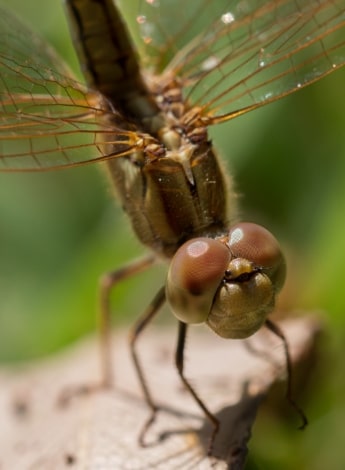
A female Scarlet Percher dragonfly is in focus. Photo: Lauren Wade.
‘I did have one patient who wanted me to see them three times a week so I took the kids with me.
'They were an Italian family and said, “Oh well, bring the children. It will be fine.” I used to see her for an hour and then spend half an hour cleaning up the mess the kids made.’
Most of Lauren’s clients were referred to her from hospital brain injury units.
She also had a friend who ran her own mobile practice and referred some clients to her.
As her children grew and began their schooling, Lauren was able to devote more time to her service and she eventually built it up to operate five days a week with occasional appointments on weekends.
Lauren embarked on further education, becoming an APA Neurological Physiotherapist in 2005 and then a Specialist Neurological Physiotherapist (as awarded by the Australian College of Physiotherapists in 2010).
She has also served as a censor at the College.
Now that she’s scaled back her work to just a few clients, Lauren has more time to pursue her passion for photography.
Her husband Chris retired four years ago and Lauren intends to retire at the end of this financial year.
The couple has plans to travel all over Australia, capturing images of the rugged beauty and the flora and fauna on her trusty camera along the way.
© Copyright 2024 by Australian Physiotherapy Association. All rights reserved.

